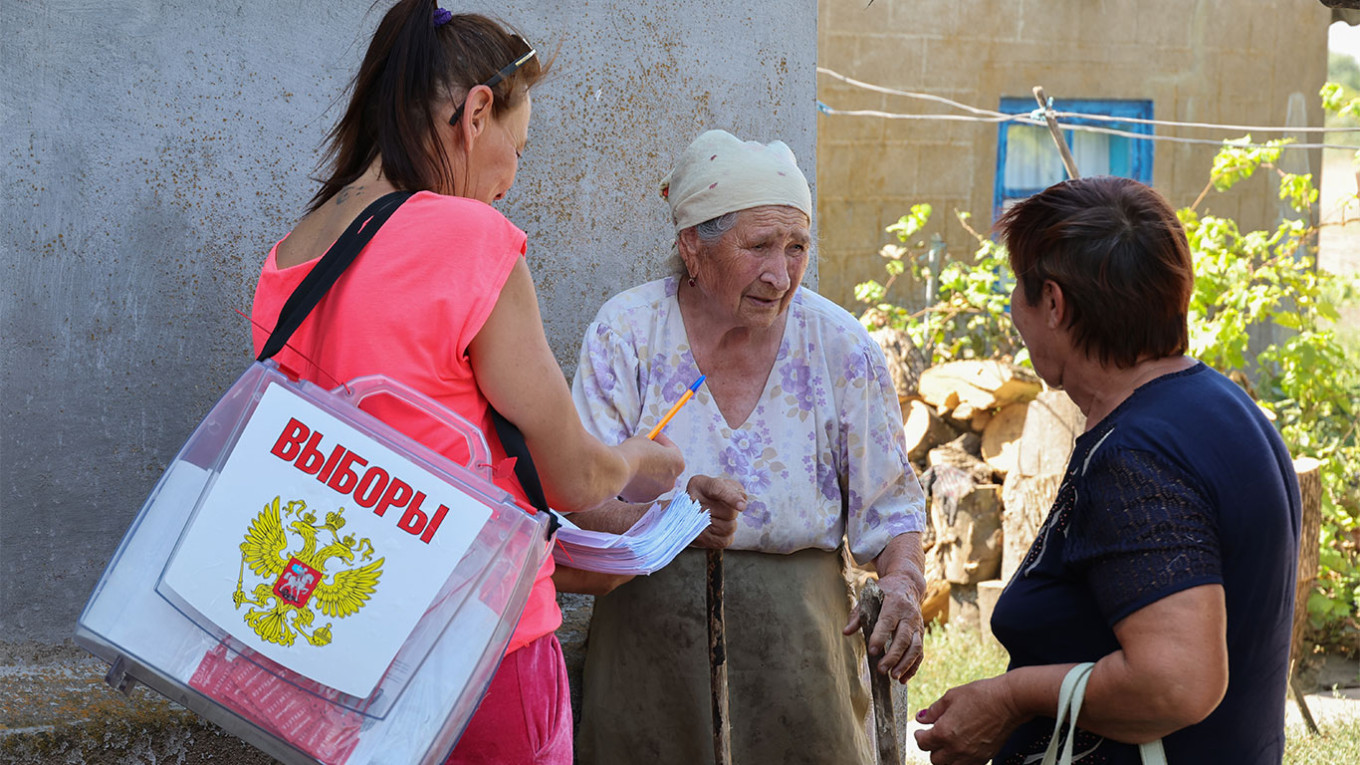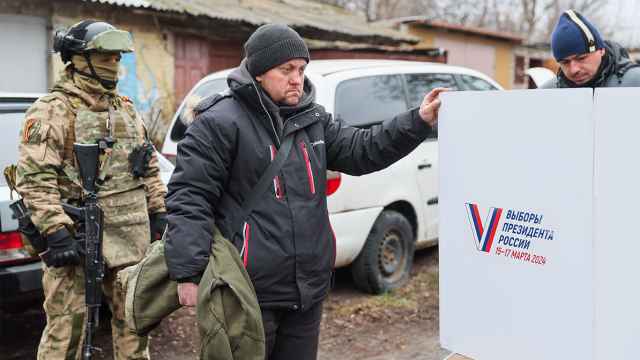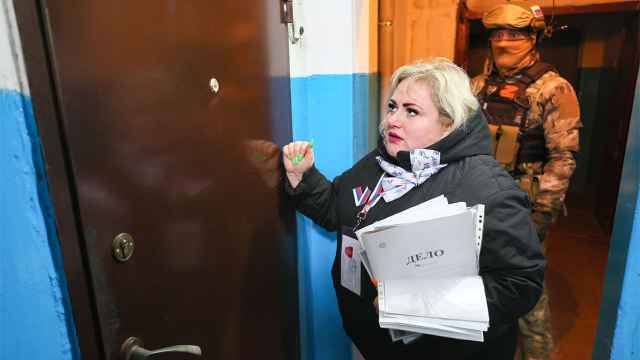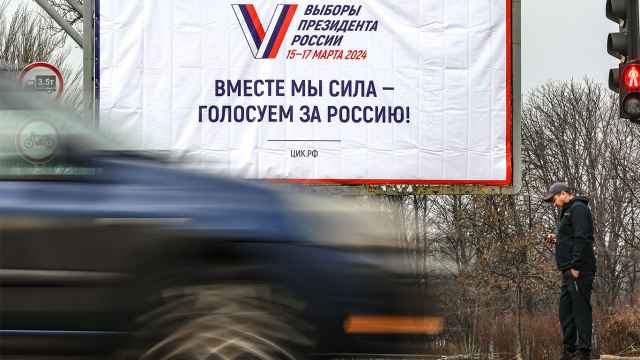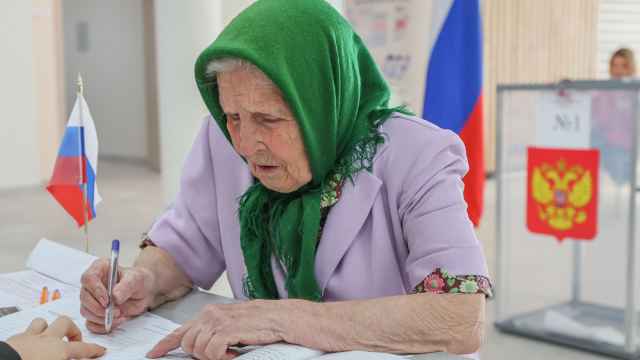Authorities in separatist and Russian-occupied regions of Ukraine on Thursday announced the start of early voting in local elections.
Voting was due to take place on Sept. 10, as part of elections scheduled in dozens of regions across Russia, where voters will elect new governors, local parliaments and municipal councils.
However, Kremlin-backed authorities in the occupied Donetsk and Zaporizhzhia regions organized early elections starting Thursday, while voting in the Kherson and Luhansk regions will open on Saturday.
No real opposition is standing in the elections as the authorities wage a brutal crackdown on any dissenting voices.
Over the next week, residents of frontline areas unable to cast their ballots at polling stations due to safety concerns will have the option to vote at so-called “mobile” polling stations under the watchful eye of Russian soldiers.
Footage shared by Russia’s state-run news agency TASS showed the so-called “field voting” process where uniformed soldiers and police officers observe Donetsk residents casting their ballots.
“This early voting is being held to protect our citizens... in order to avoid crowding at polling stations,” Donetsk election commission member Marina Guselnikova told TASS.
The Russia-backed mayor of Donetsk, Alexei Kulemzin, said that troops will be deployed to polling stations to “provide security to members of election commissions.”
Moscow controls around one-fifth of neighboring Ukraine's territory, including the Crimea peninsula, which it annexed in 2014, and parts of the Luhansk, Donetsk, Zaporizhzhia and Kherson regions.
Around 2 million voters from the Donetsk region are expected to cast ballots for 90 members of the regional legislature, as well as for more than 500 members of local councils, from five Kremlin-approved political parties, according to the pro-Russia Donetsk News Agency.
On Sept. 10, known as Single Voting Day, the news agency notes that 81 Russian regions are expected to open 330 “extraterritorial” polling stations for refugees from occupied regions of Ukraine.
Legal changes signed into law by President Vladimir Putin allowed Russia’s Central Election Commission to call elections in occupied areas under martial law during ongoing heavy fighting.
The votes, which are not expected to be recognized by Ukraine and the wider international community, are seen as Russia’s latest efforts to legitimize Kremlin-installed administrations in occupied Ukrainian territories and further bring them into Moscow’s fold.
Fighting continues to rage in many parts of eastern Ukraine as Kyiv presses on with its counteroffensive, launched in June along a vast front of almost 1,000 kilometers.
After weeks of grinding combat, Ukraine is hoping for a major breakthrough in the Zaporizhzhia region after recapturing the village of Robotyne this week.
AFP contributed to this reporting.
A Message from The Moscow Times:
Dear readers,
We are facing unprecedented challenges. Russia's Prosecutor General's Office has designated The Moscow Times as an "undesirable" organization, criminalizing our work and putting our staff at risk of prosecution. This follows our earlier unjust labeling as a "foreign agent."
These actions are direct attempts to silence independent journalism in Russia. The authorities claim our work "discredits the decisions of the Russian leadership." We see things differently: we strive to provide accurate, unbiased reporting on Russia.
We, the journalists of The Moscow Times, refuse to be silenced. But to continue our work, we need your help.
Your support, no matter how small, makes a world of difference. If you can, please support us monthly starting from just $2. It's quick to set up, and every contribution makes a significant impact.
By supporting The Moscow Times, you're defending open, independent journalism in the face of repression. Thank you for standing with us.
Remind me later.


